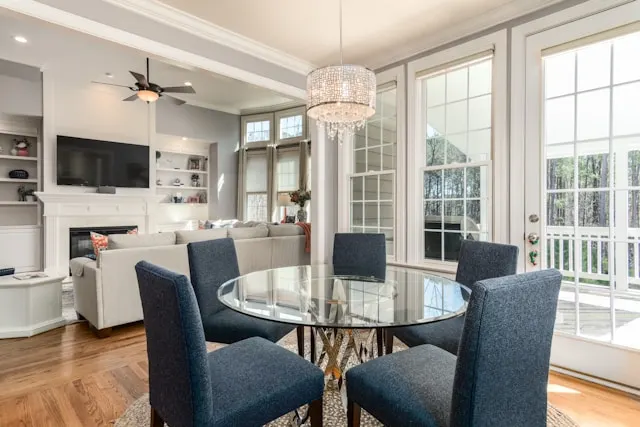Building a custom home is like turning your dreams into reality. It’s a chance to design a space that truly reflects who you are and what you love. However, it’s also a big task that needs a lot of careful thought and planning. From setting a budget to choosing the right location and materials, every decision is important. In this article, we’ll explore the essential factors you should consider to make sure your custom home meets your expectations and serves you well into the future.
Table of Contents
1. Budgeting
First and foremost, establish a clear budget. Knowing how much you can spend will guide every decision you make, from the size of the home to the materials you choose. Remember to include a buffer for unexpected costs, which are common in construction projects. It’s wise to discuss your budget with your contractor and ensure that they understand your financial boundaries.
Also read: How To Avoid Expensive Payroll Errors
2. Location
Choosing the right location is crucial. Consider factors like the neighborhood, proximity to work, schools, and amenities, as well as the natural environment. Each location has its building codes and regulations, which can affect your construction. Make sure the lot you select aligns with the type of home you want to build.
3. Design and Layout
Think carefully about the design and layout of your home. How many rooms do you need? What kind of flow do you want between spaces? Consider the needs of your family, both now and in the future. For example, having a bedroom on the ground floor can be beneficial for elderly family members. Hiring a skilled architect can help translate your ideas into practical designs.
Also read: Reasons You Should Hire a Wedding Planner
4. Sustainability
Building an energy-efficient home not only helps the environment but can also save you money in the long run. Consider incorporating sustainable features like solar panels, energy-efficient appliances, and sustainable building materials. Proper insulation and windows can greatly reduce heating and cooling costs.
5. Builder Selection
Choosing the right builder is one of the most critical steps. Look for a builder with experience in custom homes and good customer reviews. They should be licensed, insured, and willing to provide references. A good builder will understand your vision and can offer practical solutions and advice.
Also read: Tips To Get Booth At Expo
6. Interior Design
The interior of your home should reflect your personal style while being functional. Think about the aesthetics you enjoy and how they can be incorporated into the home’s design. This includes everything from the floor plan to the finishes like countertops, cabinetry, and flooring. Choosing the right colors, textures, and materials can make a significant difference in creating a space that feels like home.
Also read: Tips For Choosing Custom Packing
7. Technology Integration
Modern homes often integrate technology for better functionality. This can include smart home systems for controlling lighting, temperature, and security remotely. Consider what technologies will enhance your lifestyle and how they can be integrated into your home design.
8. Long-term Planning
Consider how your needs might change over time. A flexible design can accommodate future changes, such as family expansion or decreased mobility. Features like extra guest rooms, a home office, or adaptable spaces can add significant value and convenience.
Also read: Top Ideas to Celebrate a Kid’s Party
9. Legal Requirements
Understand the legal aspects of building a home, including permits, building codes, and inspections. Failure to comply with local regulations can result in costly delays and modifications. Work with your builder to ensure all legal requirements are met before construction begins.
Also read: Benefits Of Workforce Management
10. Timing
Construction can be affected by many factors, including weather, supply chain issues, and labor availability. Have a realistic timeline and a backup plan in case of delays. Being flexible and prepared for adjustments can reduce stress throughout the building process.
Conclusion:
Creating a custom home is a rewarding journey that results in a place uniquely suited to your lifestyle and tastes. By carefully considering factors such as budget, location, design, and sustainability, you can ensure that your new home is not only beautiful but also functional and efficient. Remember to choose the right professionals, plan for the long term, and stay adaptable to overcome any challenges along the way. With the right preparation and mindset, you’ll be able to build a home that you and your family will cherish for years to come. Check more articles on Nomadic Goals.

